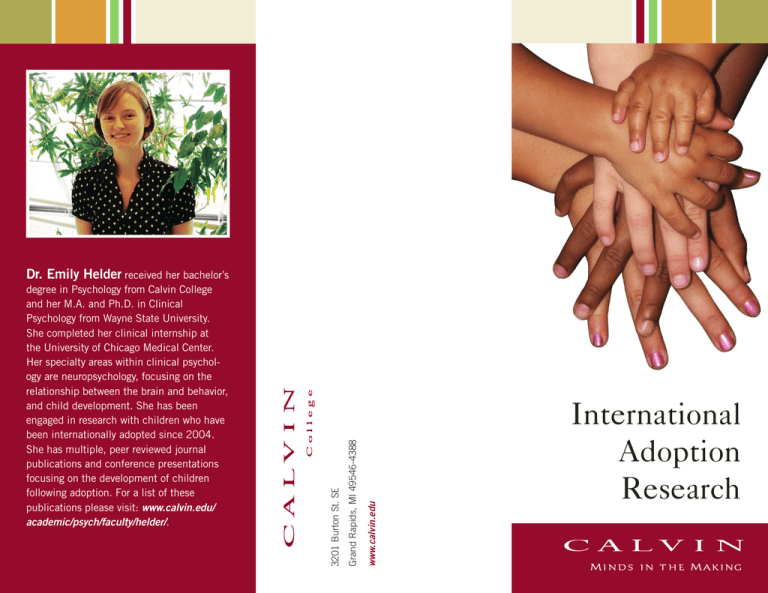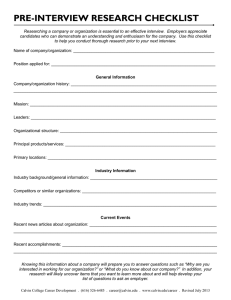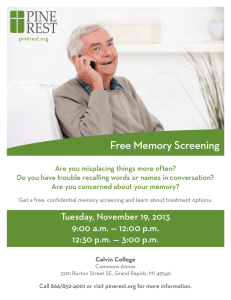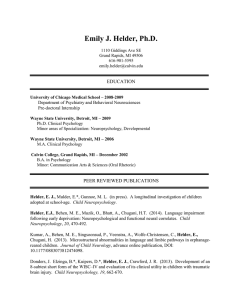Dr. Emily Helder
advertisement

www.calvin.edu Grand Rapids, MI 49546-4388 degree in Psychology from Calvin College and her M.A. and Ph.D. in Clinical Psychology from Wayne State University. She completed her clinical internship at the University of Chicago Medical Center. Her specialty areas within clinical psychology are neuropsychology, focusing on the relationship between the brain and behavior, and child development. She has been engaged in research with children who have been internationally adopted since 2004. She has multiple, peer reviewed journal publications and conference presentations focusing on the development of children following adoption. For a list of these publications please visit: www.calvin.edu/ academic/psych/faculty/helder/. 3201 Burton St. SE Dr. Emily Helder received her bachelor’s International Adoption Research Participation Requirements If your child has been adopted in the last 3 years and is younger than 16 years old, you are eligible to participate. There is no financial cost to families in the study. If you choose to participate in the study, you and your child will be doing three things: 1. Completing a consent form and several parent rating forms looking at your child’s behavior and emotions. Description of Study 3. Your child will participate in a comprehensive assessment of his/her thinking skills. The skills assessed vary widely depending on the age of the child. You will receive feedback regarding your child’s performance on the assessment. Emily Helder, PhD Psychology Department Science Building 326 Calvin College Grand Rapids, MI 49546 616-526-6396 (office) 616-526-6537 (fax) emily.helder@calvin.edu N E A S T B E LT L I N E ( M 3 7 ) You and your child are invited to participate in a study that hopes to learn more about how children develop following international adoption. We would like to learn more about what changes occur in children’s thinking skills (such as language), behavior, and emotional adjustment after adoption. The goal is to better understand how children change over time and use this information to understand when interventions would be helpful. We also hope to better understand what things predict good adjustment following adoption and what things might be early signs that help us intervene sooner, when necessary. Therefore, we are hoping to include both families whose children are developing well and families who have concerns about their child’s development. This study has been reviewed and approved by Calvin College’s Institutional Review Board. 2. Completing an interview that will ask questions about your child’s developmental history. Contact Information



